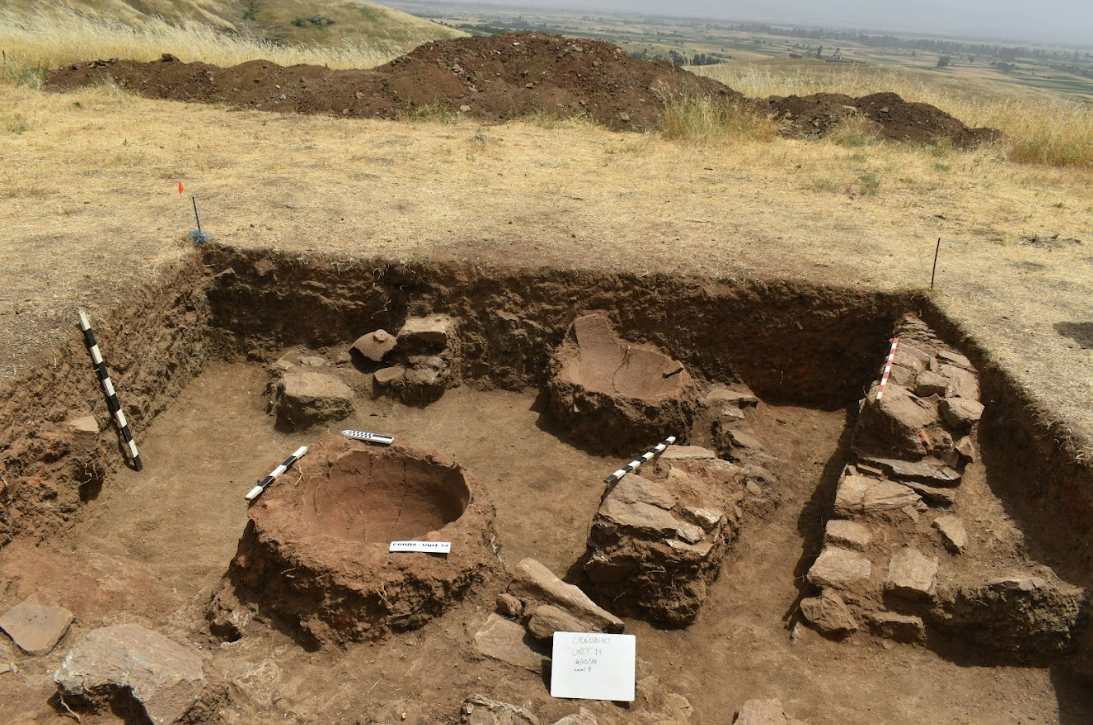For decades, a scattering of ruins in southeastern Europe was dismissed as little more than an unremarkable military outpost, but new excavations are rewriting that story. Archaeologists now believe the site may be the lost capital of an ancient kingdom with direct ties to none other than Alexander the Great, the ferocious conqueror whose campaigns reshaped the ancient world.
The site is found near the village of Crnobuki in North Macedonia. The earliest mention of it appears in 1966, but it wasn’t fully excavated until just 15 years ago. A few ruins were uncovered, but nothing too remarkable. It seemed to just be a guard post used to watch out for Roman attacks from the west.
Now, a team of researchers from North Macedonia’s Institute & Museum–Bitola and California State Polytechnic University-Humboldt has returned to the scene for a new dig, armed with the latest archaeological technology. Their work is revealing that the settlement is much larger, much older, and much more important than previously suggested.
It appears it was a sprawling city at least 2.8 hectares (7 acres) in area, with several significant structures like a possible Macedonian-style theater and a textile workshop.
Previous scholars thought the settlement rose during the reign of King Philip V, between 221 and 179 BCE. However, the unearthing of a coin minted between 325 and 323 BCE – when Alexander the Great still walked the Earth – has rewound the clock on its founding.

This coin, unearthed in 2023, was minted at the Miletus Mint in present-day Turkey between 325-323 BCE.
Image courtesy of Cal Poly Humboldt
The recent excavations have also discovered ancient tools, like axes and shards of ceramic vessels, that have shifted the timeline back even further. These clues now suggest that humans may have first settled the area as early as the Bronze Age, stretching back to somewhere between 3,300 and 1,200 BCE.
The ancient kingdom of Macedonia was on the edges of the ancient Greek world, just out of the grasp of powerful city-states like Athens and Sparta. Nestled in the rugged northern mainland frontiers, it was often seen as a cultural outsider: Greek, yet not fully embraced by the Hellenic elite. This peripheral status allowed Macedonia to forge its own path, blending Greek traditions with local customs and ultimately rising to reshape the entire ancient world under leaders like Philip II and his son, Alexander the Great.
Alexander the Great obtained that name for a reason. He went on to accomplish what no Greek leader before him had dared, carving out one of the largest empires in history, stretching from Greece to Egypt and as far east as India. Even more astonishing is that he achieved all of this in just 13 years, before dying at the age of 32.
The latest finds in Crnobuki add a little bit to that grand story, closely overlapping with a very busy chapter in ancient history.

Another look at the archeological excavations in Crnobuki.
Image courtesy of Cal Poly Humboldt
“This discovery is significant. It highlights the complex networks and power structures of ancient Macedonia, especially given the city’s location along trade routes to Constantinople. It’s even possible that historical figures like Octavian and Agrippa passed through the area on their way to confront Cleopatra and Mark Antony at the Battle of Actium,” Nick Angeloff, anthropology professor and archaeologist at Cal Poly Humboldt, said in a statement.
Angeloff even wonders if the site could be the long-lost capital of the ancient Kingdom of Lyncestis, known as Lyncus. This was a thriving settlement believed to have been established in the seventh century BCE that was a key hub of the Upper Macedonian realm. Some scholars believe it could be the birthplace of Queen Eurydice I, the formidable grandmother of Alexander the Great, who played a pivotal role in the shifting power dynamics of the region.
“All these studies are just a small part of the research of early European civilizations. I see it as a large mosaic, and our studies are just a few pebbles in that mosaic. With each subsequent study, a new pebble is placed, until one day we get the entire picture,” commented Engin Nasuh, curator-advisor archaeologist at the National Institute and Museum–Bitola.
Source Link: Archaeologists May Have Found The Forgotten Capital Of A Lost Civilization